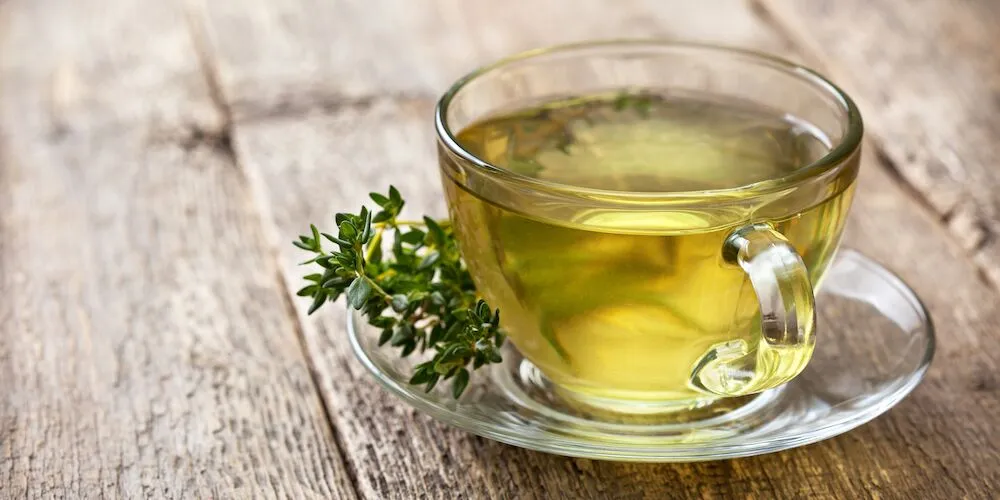Respiratory Relief and Immune Support
Research supports thyme’s ability to reduce coughing, break up mucus, and soothe bronchial passages. Inhaling thyme vapors can also help treat sinus infections or flu symptoms. For sore throats caused by strep or tonsillitis, gargling with cooled thyme tea may reduce bacteria and inflammation.
Digestive and Allergy Benefits
Thyme tea is also a natural remedy for diarrhea, foodborne illnesses, and stomach cramps. Its anti-inflammatory effects extend to easing symptoms of colitis and allergic reactions, making it a helpful herbal option for asthma and seasonal allergies.

Anxiety, Skin Health, and More
Thyme’s calming effect can also reduce anxiety. Drinking thyme tea or inhaling the essential oil helps soothe the nervous system. Studies also show that thyme tinctures may outperform conventional acne treatments like benzoyl peroxide. Additionally, thyme oil is effective at combating mold in the home, offering both health protection and a cleaner environment.
Precautions
While thyme is generally safe, those allergic to herbs in the mint family (like oregano or basil) should avoid it. It may also interfere with blood-thinning medications and has estrogen-like effects, so women with hormone-sensitive conditions should use it cautiously.
Whether you enjoy it in tea, apply it on your skin, or add it to your meals, thyme is a small herb with big benefits.
